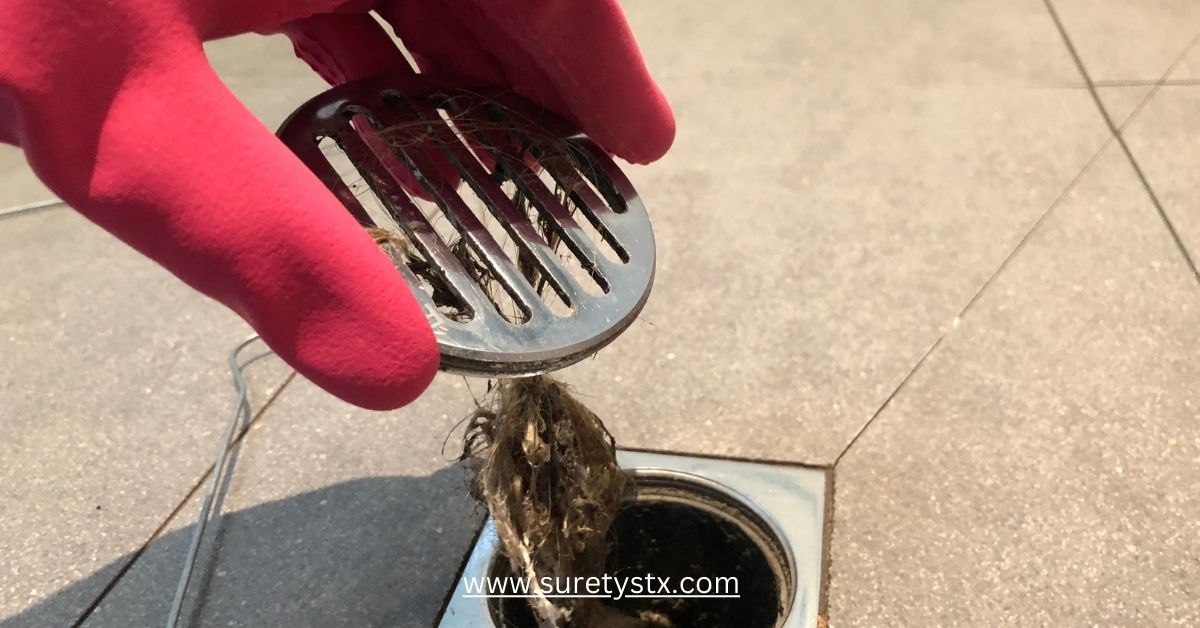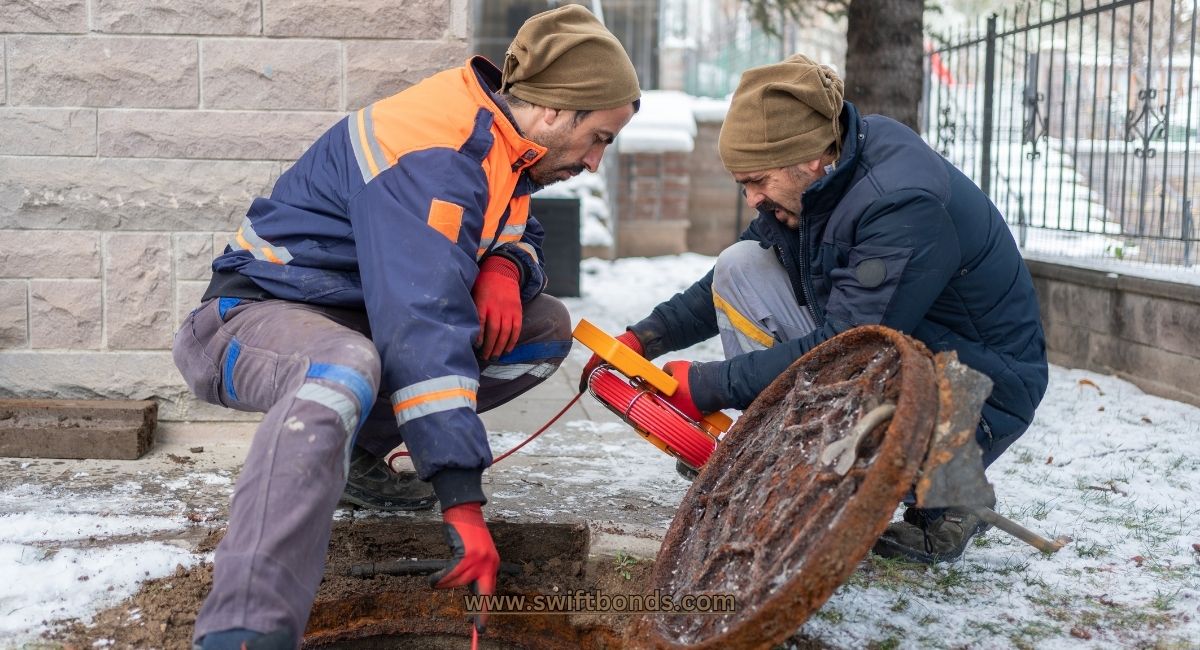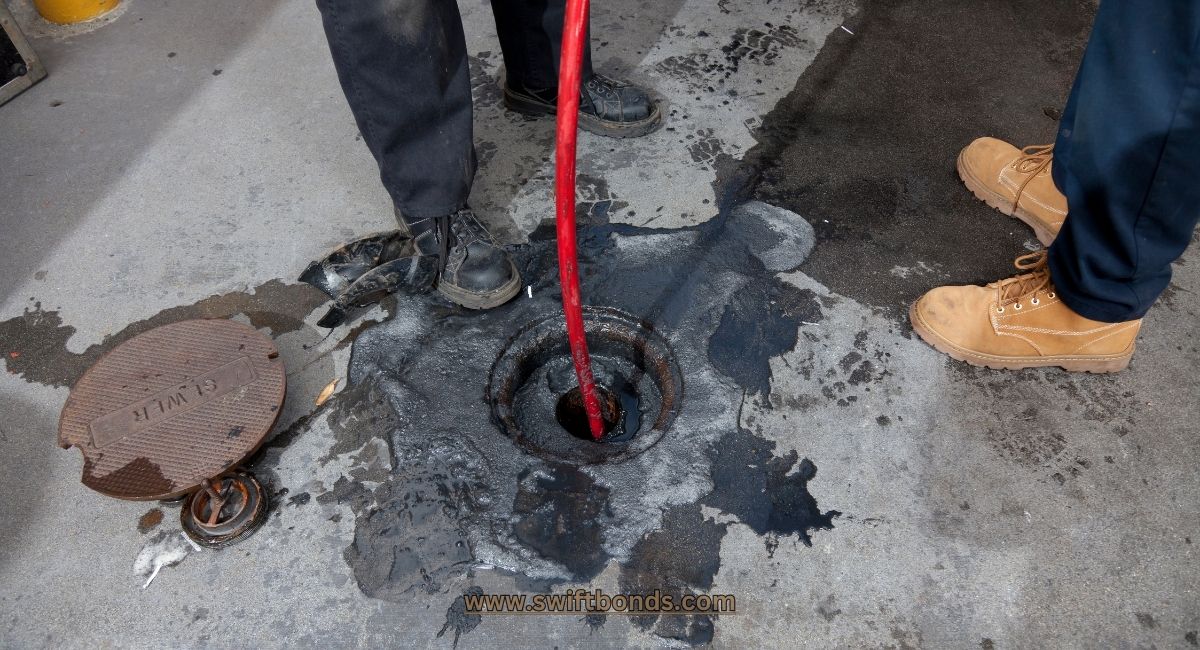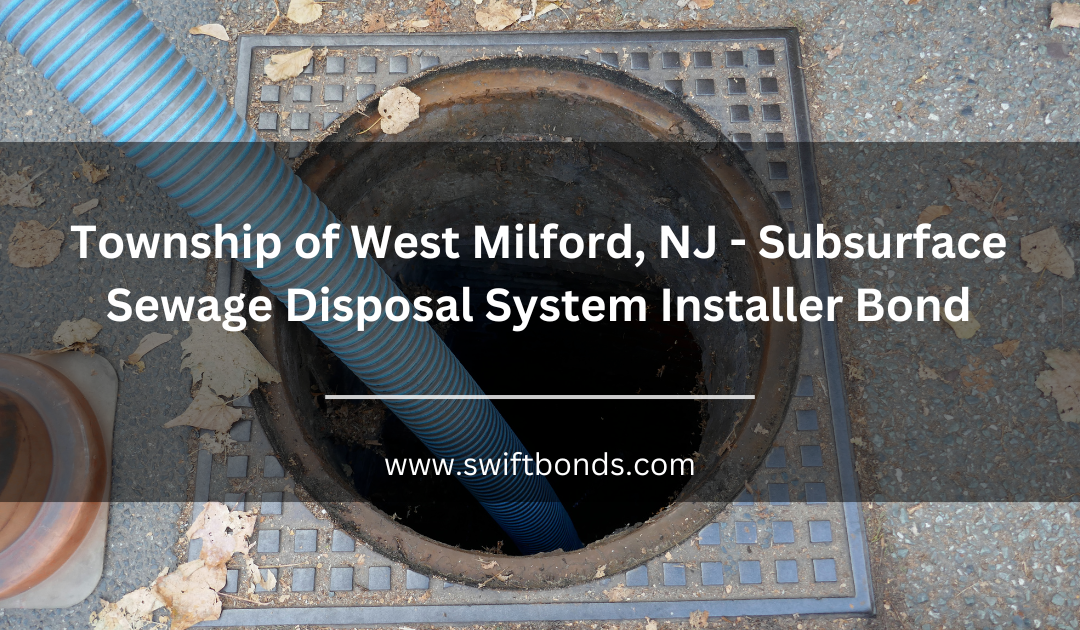Get an Instant Quote on Subsurface Sewage Disposal System Installer Bond
Introduction
From our perspective, contractors working in septic system installation across the Township of West Milford, NJ face more than just technical demands—they also encounter rigorous municipal regulations. Before touching soil, they must provide proof of responsibility through a financial instrument known as the Township of West Milford, NJ – Subsurface Sewage Disposal System Installer ($10,000) Bond.
This bond exists to protect the municipality and its residents from substandard installation or system abandonment. Septic systems, when poorly handled, can pose severe environmental risks. This $10,000 bond is the township’s safeguard, ensuring every installer complies with the health code, performs the work to specification, and remediates any damage. It’s a targeted form of risk management—similar in spirit to what municipal contractors meet with a Town of Kearny, NJ – Right of Way Permit Bond, except focused on private wastewater systems.
Why Local Bonding Requirements Create Frustration for Installers
We’ve noticed that contractors often don’t realize how specific and localized bonding requirements can be. It’s common for a contractor to assume a general contractor’s bond or business license is sufficient to meet municipal septic regulations—but that’s far from the case in West Milford.
The confusion typically stems from a misunderstanding about bond categories. This particular bond is not about business licensure or payment—it’s about environmental protection. Failure to meet the township’s exacting standards could result in rejected permits or expensive remediation, just as road contractors face penalties without a Union County, NJ – Road Opening Permit Bond on file.

How Swiftbonds Makes the Bonding Process Clear and Fast
Based on our experience, contractors appreciate speed, simplicity, and clarity—three things Swiftbonds specializes in. When a septic installer in West Milford needs a Subsurface Sewage Disposal System Installer ($10,000) Bond, they’re often in a time-sensitive position: waiting on bond approval to begin work or finalize permitting.
Swiftbonds offers:
-
Same-day issuance in most cases
-
Bonds from A-rated surety companies authorized in New Jersey
-
Low premiums with no hidden fees
-
A seamless digital process, from quote to delivery
We handle septic installer bonds with the same focus we give to infrastructure bonds like the Town of Kearny, NJ – Right of Way Permit Bond, ensuring contractors stay compliant and ready to build.

Steps to Comply with West Milford’s Bonding Rule
What we’ve discovered is that following a structured process not only simplifies compliance—it speeds up project approval. Here’s the typical path to securing your Township of West Milford, NJ – Subsurface Sewage Disposal System Installer Bond:
- Contact the West Milford Health Department – Confirm you’re registered as a licensed subsurface sewage disposal system installer and get bond form requirements.
- Apply with Swiftbonds – Submit a short application with your business credentials and financials.
- Receive your bond quote – Once approved, you’ll sign the bond electronically and pay a one-time premium.
- File the bond with the township – Include your signed bond with any permit applications to begin work.
This sequence echoes the process followed by roadwork and utility contractors in Union County who must file a Union County, NJ – Road Opening Permit Bond to access rights-of-way.

The Consequences of Overlooking This Requirement
In our observation, skipping the bond requirement can stall projects indefinitely. In West Milford, your septic system plans won’t be approved until the bond is filed. If you attempt to work without it, you could face fines, denial of future permits, or a loss of standing with the township.
More seriously, if you abandon work or cause environmental damage without financial assurance in place, the township may pursue legal recovery. This creates exposure for:
-
Restoration costs
-
Environmental clean-up
-
Fines for code violations
-
Delayed or cancelled projects
The same risks apply in public infrastructure scenarios, which is why experienced contractors always carry a valid Town of Kearny, NJ – Right of Way Permit Bond when trenching in municipal streets or sidewalks.

Meeting the Bond Requirement Builds Trust and Credibility
We’ve learned that bonded installers earn trust more quickly—both from local officials and from private clients. A current, active bond tells the township you’re a reliable contractor who stands behind your work. It also reassures homeowners that your work meets health code requirements and environmental safety standards.
Key benefits of bonding include:
-
Faster permit issuance from the health department
-
Better chances of winning competitive residential or commercial jobs
-
Legal coverage for repair or remediation
-
Long-term credibility with town officials
This reputation-building effect mirrors what contractors experience in county-level infrastructure jobs when they carry a valid Union County, NJ – Road Opening Permit Bond—an important credential that opens doors to higher-value contracts.
New Jersey Construction Bonding and Health Code Regulations
The Township of West Milford, NJ – Subsurface Sewage Disposal System Installer Bond is rooted in New Jersey’s broader framework for construction, environmental health, and surety compliance. While this bond is municipal, it aligns with the principles of the New Jersey Little Miller Act (N.J. Stat. Ann. § 2A:44-143), which mandates performance bonds for public work.
West Milford’s health department enforces the bond under local environmental health ordinances. The goal is to:
-
Protect groundwater from improper sewage disposal
-
Prevent property devaluation from failed septic systems
-
Hold installers financially accountable for the work they perform
Contractors are required to use a licensed surety like Swiftbonds, and must file the bond before starting installation. This process mirrors the structure seen in counties and municipalities across New Jersey where road, water, or utility work is performed.
Conclusion
We’ve come to appreciate that the Township of West Milford, NJ – Subsurface Sewage Disposal System Installer ($10,000) Bond is more than a permitting requirement—it’s a mark of professional accountability. This bond safeguards the environment, supports public health, and ensures project continuity for installers who work responsibly.
Swiftbonds makes this process efficient and stress-free. From septic systems in West Milford to roadway access in Kearny and county projects in Union, we help contractors meet New Jersey’s bonding obligations quickly and affordably. With options tailored to your exact project scope and township requirement, you’ll have the tools to meet deadlines, win jobs, and build long-term trust.
Frequently Asked Questions
Who needs the Township of West Milford, NJ – Subsurface Sewage Disposal System Installer Bond?
We’ve often noticed that any contractor working on septic systems or subsurface sewage disposal projects in West Milford must post this bond before receiving a permit.
What does this bond guarantee?
We’ve often noticed that it guarantees the contractor will complete installation work in accordance with township regulations and restore any affected land, protecting the public and environment.
What’s the cost of the bond?
We’ve often noticed that costs vary, but for a $10,000 bond, most contractors pay a small premium—usually under $200—depending on credit and experience.
Can the township make a claim on this bond?
We’ve often noticed that yes, if the contractor abandons the job, violates health codes, or fails to repair damage, the township may file a claim to recover remediation costs.
How does this bond compare to a Right of Way Permit Bond?
We’ve often noticed that while both serve as financial guarantees, the Town of Kearny, NJ – Right of Way Permit Bond protects public infrastructure during access or excavation, while this West Milford bond protects environmental and health interests during septic work.


